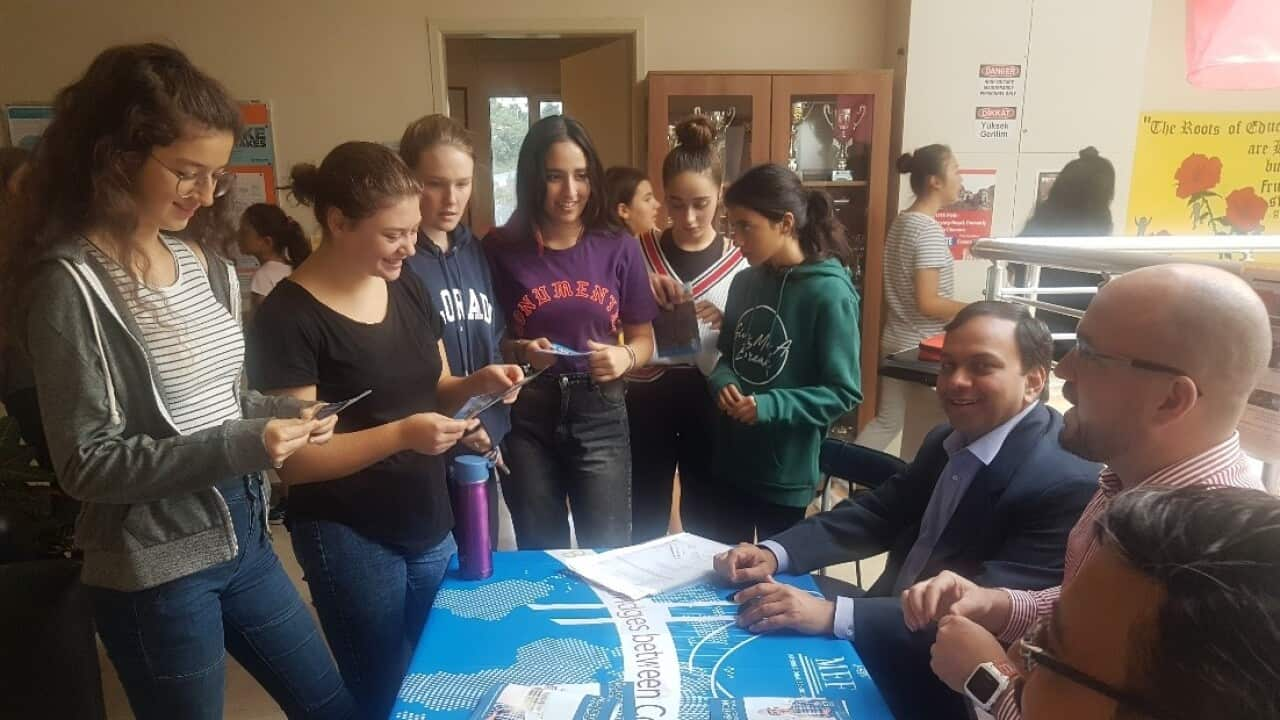Research has shown that when parents are engaged in their children’s school and education, children get better results, stay in school longer and are happier.
Australian Parents Council’s president Shelley Hill says it’s also beneficial for parents: “It can help you to form new friendships, understand how the education system works here in Australia and see how your child is going and fitting in so you can ask questions at home."

Parents are not necessarily encouraged to get involved in their children’s school everywhere in the world, but Shelley Hill assures that it’s more than welcome in here.
"In Australia, schools and teachers are very welcoming of parents. They want to know your family and your child so that they can work well with them and together with you in a good partnership. It's something that's strong here in Australian schools," she explains.
Be available at home
Before going into the school, you can start by being available for your children at home. Ask them questions about their day at school and what they’ve learnt. Show interest and encouragement about what they've achieved.
If you can help with homework, it’s a plus, but if you can’t, you can still have a look at what they’re doing and their schoolbooks. “Supporting their child to find a quiet space to complete homework is also really useful. We all know that might not be possible because some home environments are too crowded, too small or too noisy so it's a good time to seek out the school library or the local library. Homework or study support clubs or family learning clubs can be a fantastic resource," says Lauren Ireland, Education Project officer at the Centre for Multicultural Youth. It's also important to encourage children to maintain their first language. "Reading and sharing stories with their children is extremely valuable, and this doesn't have to be in English for it to be beneficial. It can be reading books in their home language, or they can be just telling stories from their own culture. Even picking up a book that has English language and just discussing the pictures, what's happening and making predictions. It’s all supporting their child's education," says Ireland.
It's also important to encourage children to maintain their first language. "Reading and sharing stories with their children is extremely valuable, and this doesn't have to be in English for it to be beneficial. It can be reading books in their home language, or they can be just telling stories from their own culture. Even picking up a book that has English language and just discussing the pictures, what's happening and making predictions. It’s all supporting their child's education," says Ireland.

Be involved at school
If language is a barrier to getting involved in your children’s school, you can contact the school staff and request an interpreter.
"Attending parent-teacher interviews and requesting an interpreter in advance is a great way to find out where the child is at with their education. They can ask the teacher question, if there are extra things they need to be doing at home, just to gauge the areas they need to improve on. Even if they can't help with these areas, they can at least be discussing them with their child," says Ireland.

While parent-teacher meetings are important, there are several other ways to be involved in your children's school. You can attend school assemblies or volunteer in the canteen, the classroom or during school excursions.
If you find it daunting, you can bring your partner or a friend with you. What’s important is to take the first step; the teachers and the school staff will support you.




